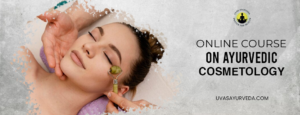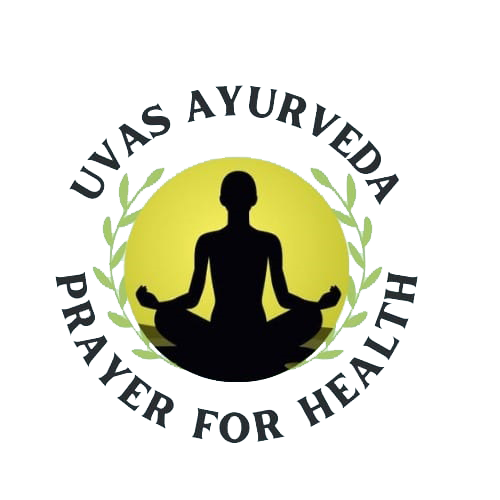At the heart of Ayurveda lies the concept of the three doshas: Vata, Pitta, and Kapha. These doshas are dynamic forces that govern physiological functions in the body. Each person has a unique combination of these doshas, which determines their individual constitution or Prakriti. Understanding one’s Prakriti is essential in Ayurveda as it guides personalized health and skincare routines.
In Ayurvedic cosmetology, skincare is approached holistically, considering not only external factors but also internal imbalances that may manifest on the skin. Ayurvedic skincare emphasizes natural remedies derived from herbs, plants, minerals, and oils, aiming to nourish the skin and restore balance. These remedies are often tailored to individual constitutions and skin types, addressing specific concerns such as dryness, oiliness, acne, or aging.
Ayurvedic skincare isn’t just about what you put on your skin. It’s also about living a balanced life. Eating healthy foods, getting enough sleep, and managing stress are all part of Ayurveda’s approach to skincare
Rasayana, or rejuvenation, is a key concept in Ayurveda that includes practices to promote longevity and vitality. Skincare is considered a part of Rasayana therapy, focusing on nourishing the skin from within through proper nutrition, herbal supplements, and lifestyle practices like meditation and yoga.
So, when there’s a demand for an Ayurveda cosmetology course, it means many people are interested in learning how to use Ayurvedic principles to take care of their skin, hair, and overall beauty in a natural way. They want to know things like which herbs and oils are good for their skin, how to make homemade beauty products, and how to balance their body’s energies for better health and beauty.
People might want to take this course for various reasons. Some might want to pursue a career in beauty and wellness using Ayurvedic methods, while others might just want to improve their own beauty routines and live a more holistic lifestyle. So, the demand for such a course shows a growing interest in natural beauty and wellness practices.

The Best Online Course on Ayurvedic Cosmetology offers comprehensive training in applying Ayurvedic principles to skincare. It covers various aspects, including:
- Understanding Ayurvedic Principles: The course begins by introducing students to the fundamental concepts of Ayurveda, such as the doshas, Prakriti, and the importance of balance in maintaining skin health.
- Identifying Skin Types and Imbalances: Students learn how to assess different skin types and recognize imbalances that may contribute to various skin issues. This includes understanding the signs of Vata, Pitta, and Kapha imbalances on the skin.
- Herbal Remedies and Ingredients: The course delves into the vast array of herbs, plants, and natural ingredients used in Ayurvedic skincare. Students learn about their properties, benefits, and how to formulate effective skincare products.
- Customizing Skincare Regimens: Based on individual constitutions and skin types, students discover how to tailor skincare routines using Ayurvedic principles. This involves selecting appropriate cleansers, moisturizers, masks, and treatments to address specific concerns.
- External and Internal Practices: Ayurvedic cosmetology goes beyond external applications and includes practices such as dietary recommendations, lifestyle adjustments, and stress management techniques to promote overall skin health.
- Ethical and Sustainable Practices: The course emphasizes the importance of ethical sourcing, sustainability, and environmental consciousness in Ayurvedic skincare. Students learn how to prioritize natural, eco-friendly ingredients and practices.
- Hands-On Application and Practical Skills: Through demonstrations, case studies, and interactive exercises, students gain practical experience in applying Ayurvedic skincare principles. They learn how to create homemade remedies, perform facial massages, and conduct skin consultations.
In simple terms, here’s how such a course can be helpful:
- Understanding Ayurvedic Principles: You’ll learn the basics of Ayurveda, like the three doshas (Vata, Pitta, and Kapha) and how they relate to skin and hair health. This knowledge helps you personalize beauty routines according to individual body types.
- Natural Remedies: Ayurveda is big on using natural ingredients like herbs, oils, and minerals for skincare and haircare. The course teaches you about these ingredients and how to use them effectively to address various beauty concerns.
- Holistic Approach: Unlike some modern beauty practices that focus solely on superficial appearance, Ayurvedic cosmetology looks at beauty as a reflection of overall health. You’ll learn how lifestyle factors, diet, and mental well-being impact your skin and hair.
- Safe and Sustainable Practices: Ayurveda emphasizes gentle and sustainable practices that work with your body’s natural rhythms. You’ll discover techniques for long-term beauty benefits without harmful side effects often associated with synthetic cosmetics.
- Career Opportunities: Once you’ve completed the course, you could pursue a career as an Ayurvedic cosmetologist. This could involve working in wellness centers, spas, or even starting your own line of Ayurvedic skincare products.
- Preventive CARE Focuses on preventing skin and hair issues through proper care routines and Ayurvedic practices.
- Panchakarma Therapies: Incorporates Panchakarma techniques like Abhyanga (oil massage) and Swedana (steam therapy) for detoxification and rejuvenation.
- Certification: Upon completion, students receive certification as Ayurveda cosmetologists, enabling them to practice professionally.
Overall, an online Ayurvedic cosmetology course equips you with the knowledge and skills to care for your skin and hair naturally, while also opening up potential career paths in the beauty and wellness industry. We at Uvas Ayurveda aim to fulfill these aims and objectives of Ayurvedic Cosmetology.It can be online or offline in Bangalore


Leave A Comment